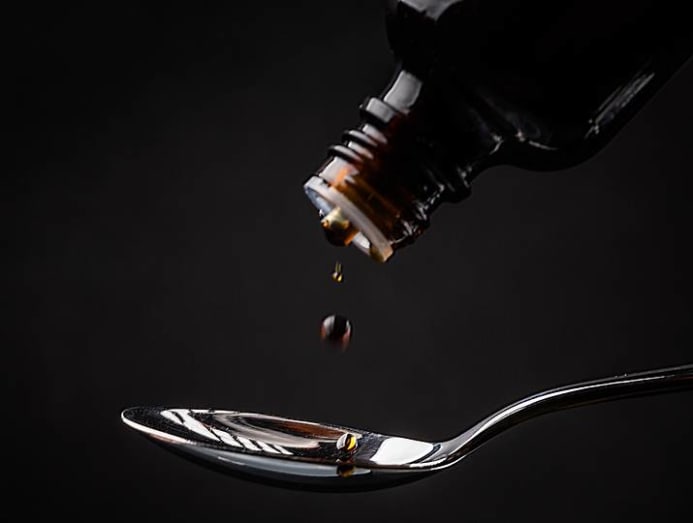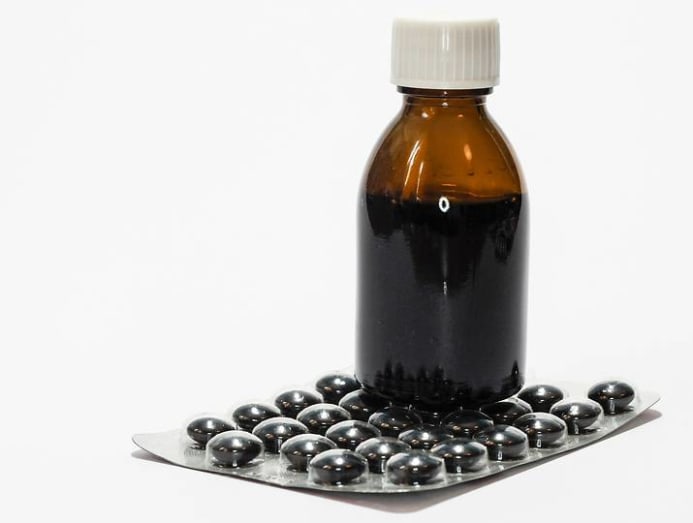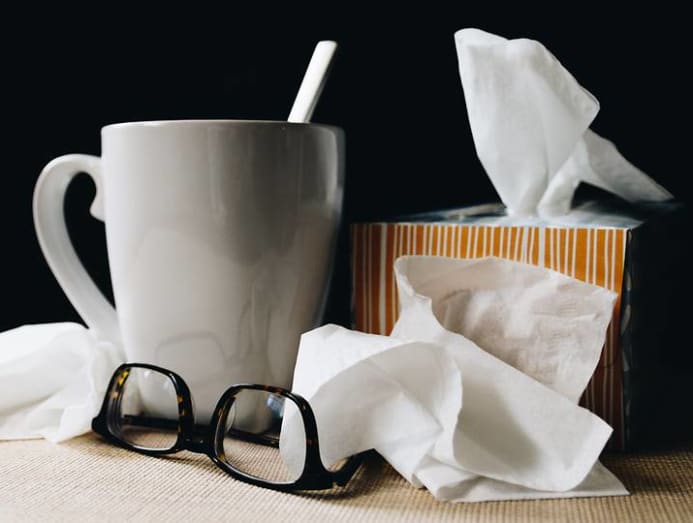Expert advice: Is your trusty herbal syrup really going to stop your cough?
What’s the right over-the-counter medication for your persistent cough? Do herbal mixtures work better than conventional cough syrups? CNA Lifestyle asks the experts for their take.

(Photo: Pixabay)
If you’ve ever caught a cold (and who hasn’t?), you’d know that a runny or stuffy nose, sneezing, sniffling and coughing are par for the course. But while your nose typically clears up or improves by the second week, that’s sometimes not the case when it comes to your cough.
One of the most common reasons for a persisting cough is post-nasal drip, said Dr Derek Li, a senior family physician at Raffles Medical. “It is essentially a back drip of mucus from the nose causing an itchy, irritative type of cough. You may feel that your nose is no longer runny, but there is still mucus dripping backwards into the throat, and this is the source of the coughing,” he said.

The types of cough can run the gamut, said Dr Tan Teck Shi, head of SingHealth Polyclinics’ Respiratory Workgroup. “Patients can have symptoms ranging from a dry cough to a productive cough with phlegm. Some patients may have a mild, intermittent cough, compared to others who may have a severe persistent cough that lasts throughout the day. The characteristics of a cough do not indicate whether it is due to a viral or bacterial infection.”
One of the commonest reasons for a persisting cough is post-nasal drip.
TRUE OR FALSE?
A cough can sometimes last for weeks and because some patients don't like the idea of consuming medicine for a long period, they turn to herbal cough remedies, which they perceive as "natural". But are they really natural?
Not usually completely, according to the Pharmaceutical Society of Singapore's (PSS) Community Pharmacy Chapter. A popular over-the-counter peppermint syrup, for example, contains the expectorant ingredient guaifenesin. To be certain, look at the active ingredients of a cough preparation beyond the brand to determine the purpose it serves, advised the PSS.

As for the effectiveness of such herbal remedies, including Nin Jiom Pei Pa Koa, Dr Li said it is “difficult to say if they are effective as the ingredients are either not well-studied or proprietary".
But, he added: “Singapore’s Health Sciences Authority is very conservative and if the cough medicine is readily sold in a respected retail pharmacy, there is a high degree of certainty that the medicine is safe for consumption as long as you follow the instructions on the label".
READ: Getting an MC – and medicine in 90 min – on your phone? We tested it out
What about the notion that cough medicines that cause drowsiness are more effective? They can be but not because you don’t cough when you’re asleep, said Dr Li. “The more effective cough mixtures act directly on cough impulse centres in the brain, and they also happen to cause drowsiness. Nonetheless, the drowsiness is a side effect and not the remedy.”
TYPES OF COUGH MEDICINES
Although cough medicines may alleviate the symptoms of a cough, said Dr Tan, they do not treat the underlying condition causing the cough. “In the case of viral infections affecting the respiratory tract (such as a cold), coughing may actually be helpful as it is the body’s natural response to clear mucus from the airways.”

But if the coughing is bothering you at work and disrupting your sleep, cough medicines that you find in the pharmacy or personal care store can help. They are typically categorised into expectorants, mucolytics, suppressants and combination. Here’s a look at what types of cough they’re suitable for, according to the PSS.
- FOR PHLEGMY OR PRODUCTIVE COUGHS
Expectorants and mucolytics
Expectorants’ key ingredients, guaifenesin and ammonium chloride, loosen and thin phlegm, making it easier for you to cough it up. Mucolytics serve a similar function using ingredients such as acetylcysteine, bromhexine and ambroxol. Both expectorants and mucolytics are generally well tolerated, though there may be rare side effects such as nausea, diarrhoea, headache or rash.
READ: Too much Vitamin C can cause kidney stones – are you popping supplements safely?
- FOR DRY OR NON-PRODUCTIVE COUGHS
Suppressants
Cough suppressants such as dextromethorphan, promethazine and diphenhydramine are used in non-productive or dry coughs. Promethazine and diphendydramine also help with allergy symptoms such as runny nose. These may cause drowsiness and the affected person should avoid driving and other activities that require mental alertness.
-
FOR COUGHS WITH ACCOMPANYING COLD SYMPTOMS
Combination mixtures
They may contain either an expectorant or mucolytic with a cough suppressant. Sometimes, these combinations also include decongestants which help with accompanying blocked nose.

However, Dr Li said that there are studies showing there is actually no evidence that any one type of cough syrup works better than another for a particular type of cough. “For example, a cough syrup marketed for dry cough was just as good as a cough syrup marketed for wet cough, at treating either wet or dry cough.”
There are studies that showed that there is actually no evidence that any one type of cough syrup worked better than another for a particular type of cough.
DOS AND DON'TS WHEN SELF MEDICATING
Over-the-counter cough medicines should not be taken for more than seven days if there is no improvement or if new symptoms surface, said Christina Lim, assistant director of Pharmacy at SingHealth Polyclinics.
Dr Tan added that it is not advisable to self-medicate a cough that lasts more than three weeks, especially when “there are symptoms such as fever, breathlessness, chest pain, persistent thick, dark phlegm, blood in the phlegm, weight loss, poor general health, or significant chronic medical conditions”.

Cough medicine is also “generally not recommended for very young children, specifically children younger than two years old,” said Lim. The dosage is just as important, she continued. “Follow the dose instructions carefully as too low a dose renders the medicine ineffective, while a higher-than-required dose increases the risk of side effects.”
If you’re not sure, it is best to consult a pharmacist or general practitioner, especially when it comes to administering cough medicine to children.





